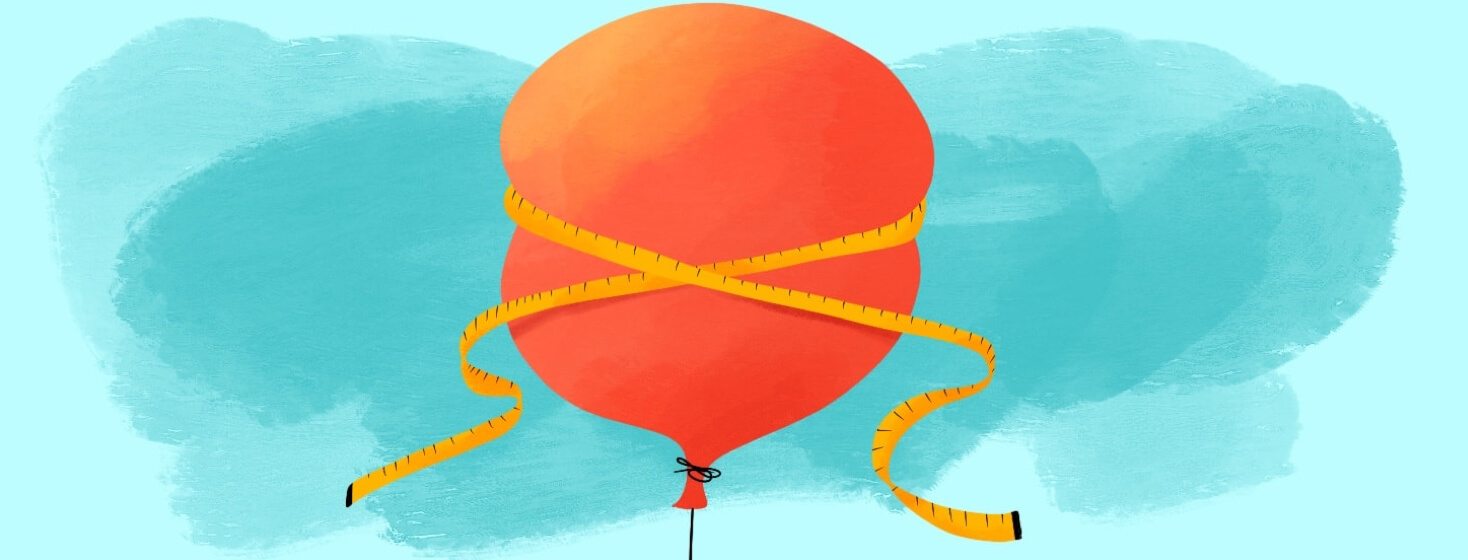Even Just Losing 10 Percent of Body Weight Can Reduce Sleep Apnea Severity
When I worked as a sleep technologist, I sent home patients with paperwork following their sleep studies that included informational sheets and instructions for what would happen next.
Those with suspected obstructive sleep apnea (OSA) received a fact sheet on treatments. Now that I have OSA myself (diagnosed after I left the sleep lab), I recall vividly the number one OSA treatment protocol.
It wasn’t “use CPAP.” It was “lose weight."
The problem of added pounds
It’s likely your doctor has recommended weight loss as part of your OSA treatment protocol.
Considering that over 40 percent of US adults aged 20 and over have obesity, with another 31.1 percent overweight, odds are we should all be concerned.1
A higher BMI contributes to other problems, like type 2 diabetes, high blood pressure, high cholesterol, coronary heart disease, and stroke.2 Carrying extra weight can even make it harder to survive COVID-19.3 And obesity can also lead to OSA, as a cause and as a consequence.
OSA is most common in people who are overweight or obese
No, you don’t have to be overweight to develop OSA. Some very thin people have craniofacial factors that affect their ability to breathe during sleep. But weight gain remains the biggest risk factor. Why?
Our fat cells, as we gain weight, grow larger, not more numerous.4 These cells compose “fat pads” found in deposits around your body, including your neck. (My neck always “grows” when I gain weight.) Larger fat pads create enough weight to restrict airflow through the upper airway.5
Belly fat – I collect weight here as well! — can also make it difficult to breathe because of the risk of compression to the chest wall. This reduces lung capacity, which then reduces airflow, which then leads to collapsed airways during sleep.5
Between 60 and 90 percent of people with OSA are overweight.5 In addition, third-party risk factors link to both obesity and OSA, such as:5
- Enlarged tonsils/adenoids
- Diabetes
- Thyroid disease
- Acid reflux
- Lung disease
- Heart problems
A vicious cycle, because OSA also causes weight gain
Yes, this totally sucks! When you don’t get enough sleep — for instance, because you wake up all night long gasping and can’t sleep for more than a few minutes at a time — you’re primed to gain weight.
The relationship between weight gain and OSA is reciprocal, it turns out. Sleep deprivation is associated with decreases in the appetite-suppressing hormone, leptin as well as increases in the appetite-stimulating hormone, ghrelin.5
Totally unfair!
This is why, after a poor night of sleep, you feel hungry and snack constantly to stay awake and find enough energy to get through the day. (Trust me, I’ve been there.)
How weight loss improves OSA
If you can lose some weight, you can shrink those fat pads. And if you shrink those fat pads, you’ll breathe more easily because there won’t be as much pressure on your airway, making it less likely to collapse during sleep.
Also, losing weight means you’ll sleep better and avoid those problems with daily munchies and daytime sleepiness.
If you can lose just 10 to 15 percent of your current body weight, you can enjoy what the Sleep Foundation calls “meaningful improvements in OSA.”5 Not quite a cure, but you’ll reduce your severity and need for complex therapies just to breathe at night.
Listen, I get it: weight loss is hard
We all face weight-loss hurdles. My diet isn’t less of a problem than my slower metabolism and a lifestyle that, while not sedentary, isn’t active enough.
Barriers for me include chronic pain, COVID-19 gym closures, climate (too hot or too cold to go outside), and too many hills for an easy walking habit. I still try to do yoga, plan for easy hikes, walk the beach, kayak whenever I can. I sometimes skip meals if I’m not hungry and strive to drink more water and eat smaller portions. I use my PAP therapy religiously.
But I’m also postmenopausal, yet another contributor to slower metabolism.6
Not giving up
Yes, I’m haunted by those 2 words that reached out to me from the top of my sleep study paperwork following my test. “Lose weight,” they said, and my sleep doctor, with each visit, repeats them. “Just 10 percent of your current body weight,” she pleads.
Easier said than done, but I’m still trying. I think it’s great news that I didn’t gain any weight during the pandemic (some studies estimate 25 pounds as an average gain over the pandemic here in the US7).
But I still need to lose weight to reduce my OSA severity, protect my heart, prevent diabetes, and give my joints some needed relief.

Join the conversation